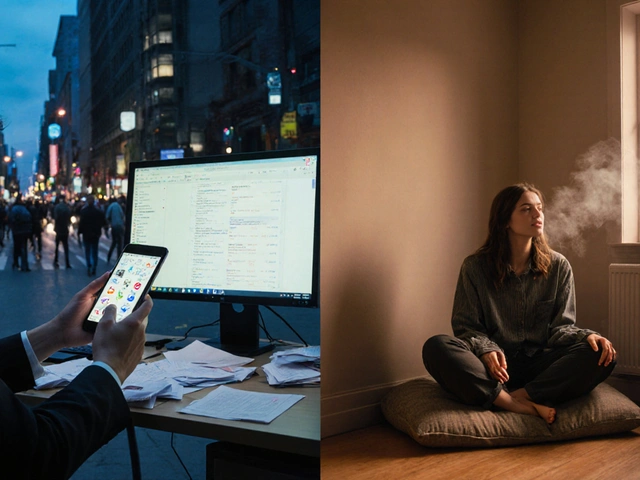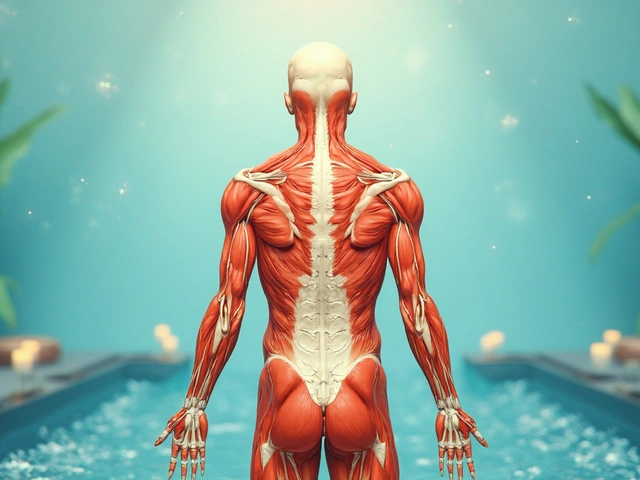Mental Health Recovery: Practical Steps That Actually Help
Recovery doesn't always look like therapy sessions and tidy milestones. It often shows up as small wins—getting out of bed, making a meal, calling a friend. If you're feeling stuck, try a clear, doable plan that mixes habits, tools, and gentle goals.
Start with one small habit: a five minute breath practice or a short walk. Small wins build momentum, and momentum beats motivation when your energy is low.
Keep a simple routine. Structure helps your brain feel safer. Pick three daily anchors: sleep, a meal, and movement. Aim for consistency not perfection.
Reach out for human connection. Text or call one person regularly. Social contact lowers stress hormones and reminds you that you are not alone.
Daily Habits That Move Recovery Forward
Plan tiny goals each day. Make them specific: "eat breakfast," "sit outside five minutes," or "write one sentence." Tiny goals feel doable and stack into real progress.
Use sleep hygiene. Set a regular bedtime, dim screens before sleep, and keep the room cool. Better sleep speeds mood recovery.
Tools and Therapies That Help
Try small tools that give you real feedback. Biofeedback and heart rate variability apps teach how breathing changes your body. Meditation, even five minutes a day, calms the nervous system. Creative arts like drawing or singing shift mood without pressure.
Food matters. Eat simple meals with protein, fiber, and healthy fats. Omega-3 rich foods like salmon or walnuts help mood. Move in a way you enjoy: dancing, walking, or gentle stretching.
Consider hands-on care. Massage, neuromuscular work, and body therapies ease tension that fuels anxiety. Talk therapy or peer groups give tools and perspective. Try different options until something fits.
Set tiny recovery goals with gentle tracking. A quick checklist or a two line journal shows progress without pressure. Celebrate small wins.
Expect setbacks. They are part of getting better. When progress stalls, cut goals in half, ask for help, and treat yourself like a friend.
If things feel heavy, reach a professional. Medication can help some people while therapy teaches tools. Combining treatments often gives quicker relief.
Start today: pick one tiny habit, set a timer for five minutes, and notice one small change. Recovery is slow work, but small steady moves add up.
Use tools you like: apps for breathing, local support groups, a favorite playlist, or a short walk route. Mix and match until you find what helps on hard days.
Keep a recovery toolbox: emergency contacts, ten-minute grounding exercises, a list of comforting foods, and a reminder of past wins.
If a tool stops working, change it. Recovery isn't linear; it needs testing. Track what helps: mood, sleep, energy. Over time patterns show what matters. Small edits lead to big change. Be kind to yourself and keep trying.
Pick one thing now: set a five-minute timer for breathing or step outside. Do it. Repeat tomorrow. Small repeated actions are the engine of recovery. You don't have to rush—steady steps win. If unsure, ask help from a trusted clinician or friend.

Biofeedback: A Breakthrough in Mental Health Recovery
Hi there, ladies! Have you ever heard about biofeedback? It's a groundbreaking technique in mental health recovery that I can't wait to share with you. With biofeedback, we can actually see and monitor our body's functions, offering us a novel way to manage stress, anxiety, depression, and so much more! It’s fascinating how it joins the dots between our physical and mental states. Join me as we delve deeper into this topic!

How a Calmness Practice Revitalizes Your Life
Oct, 17 2025

Unwind Effortlessly with Lomi Lomi Massage
Feb, 21 2025


